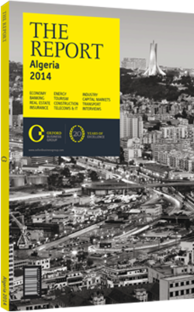OBG talks to Mohamed Laid Benamor, President, Algerian Chamber of Commerce and Industry

Interview: Mohamed Laid Benamor
What major hurdles must be overcome to encourage the creation of companies?
MOHAMED LAID BENAMOR: There is still much to do in this regard. It is true that many reforms have already been enacted to facilitate or encourage the setting-up of firms and to improve the business framework in which companies are working. Nonetheless, these measures have not produced the expected outcome. To boost the creation of companies, some financial barriers still need to be broken down, access to land has to be eased and some administrative procedures have to be simplified. This is the only way for Algeria to reverse the trend and provide the necessary conditions to move towards an increasingly formal economic activity.
In addition, there is a need to implement support programmes for young entrepreneurs who are starting out, because financing cannot represent the only solution. I am optimistic, however, as there is a growing collective awareness about this. Some decisions have been announced and measures taken to break with the past, which bears witness to the political will that exists to move towards liberalising investment and towards improving the business climate in Algeria.
Which measure can be taken to better meet the needs of Algerian companies in human resources?
BENAMOR: One of the major priorities is the creation of new links between universities, vocational training institutes, research centres and companies. It is of the utmost importance to involve companies in the establishment of vocational training programmes, in order to help universities and training centres better meet the needs of the labour market.
It is likewise necessary to encourage research and innovation, and to diversify the range of training programmes in areas such as engineering, management, or finance. Such measures would help young Algerians to better fulfil their potential and use their talents, and would also encourage them to set up their own businesses so that they can be creators of jobs and wealth.
How can small and medium-sized enterprises (SMEs) be encouraged to enter the formal sector?
BENAMOR: As an instrument of growth, SMEs are a key factor for the revitalisation of the economy. In Algeria, we only have 700,000 SMEs, which is very small compared to the size of the market. We have to identify all the barriers that are hampering any development initiative today. It is also vital to take some measures and initiatives aimed at facilitating investment, such as the establishment of a specific mapping of existing investment opportunities by region and by sector in order to drive the creation of firms. The building of a network of business incubators, in addition to advice, assistance and vocational training, would have a direct impact on the success and survival of these young companies. Cooperative efforts to achieve an environment more conducive to a productive economy will help the informal sector to integrate with the formal economy.
What are the major challenges for private firms?
BENAMOR: One of the big challenges for Algerian companies is to develop their methods of operation so that they comply with international standards – especially in the context of globalisation, where companies are increasingly open to international competition. Algeria has significant industrial clusters, and it is important that we foster partnerships with foreign firms.
To take agriculture as an example, we have a lack of technical and technological know-how that foreign companies can transfer through strategic partnerships. Such efforts could focus on many areas, such as cattle food, insemination, reproduction, transformation of crops, training and research, with a view to improving agricultural yields and quality. The authorities are ready to reinforce agricultural cooperation in this sense. The agriculture sector boasts many business opportunities, as the domestic market is still largely untapped and the economy is stable and growing. I believe Algeria has the potential to become a regional centre for exports, able to feed a large portion of sub-Saharan Africa.
You have reached the limit of premium articles you can view for free.
Choose from the options below to purchase print or digital editions of our Reports. You can also purchase a website subscription giving you unlimited access to all of our Reports online for 12 months.
If you have already purchased this Report or have a website subscription, please login to continue.

